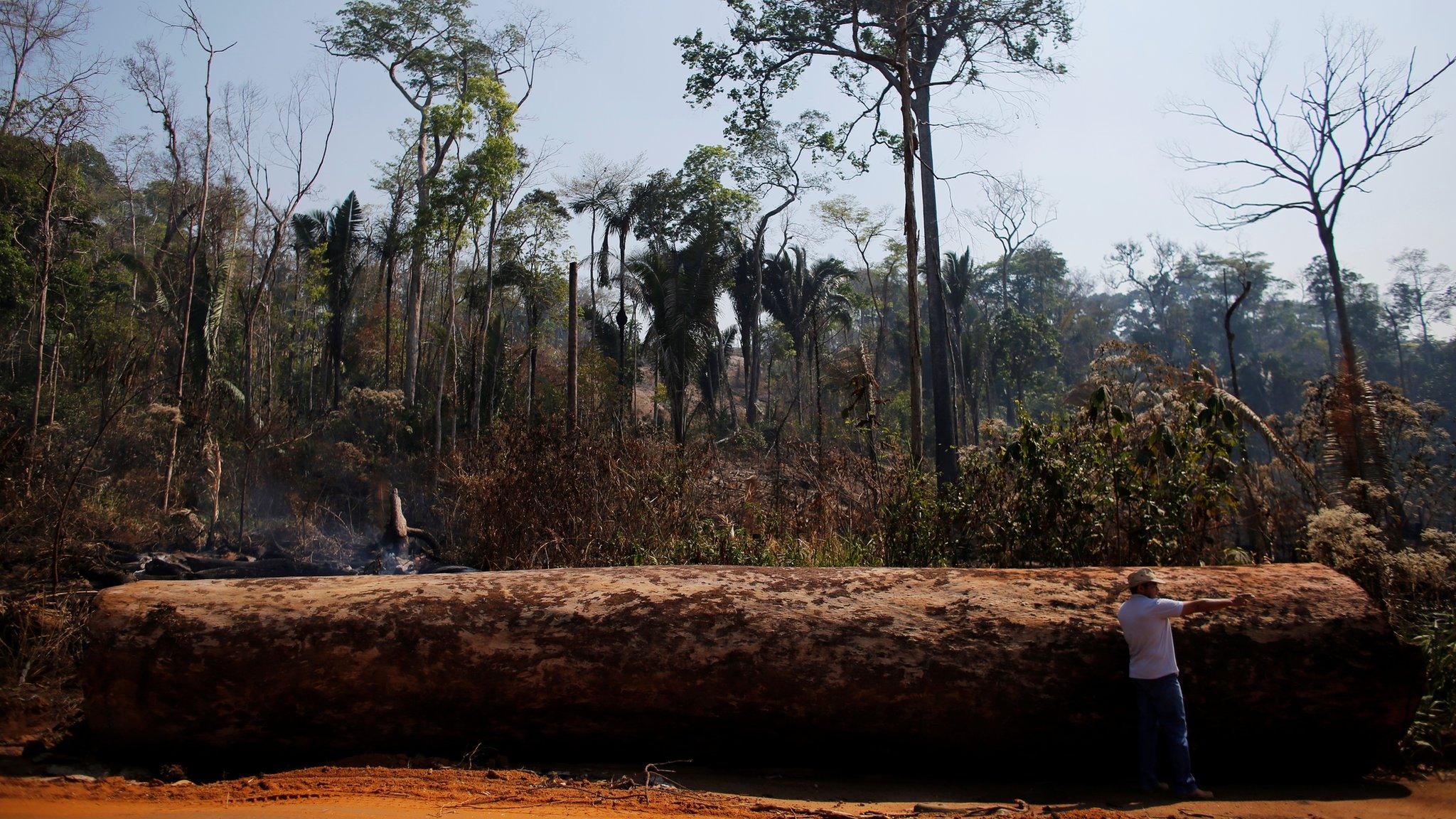Brazil's Amazon: Deforestation 'surges to 12-year high'
- Published
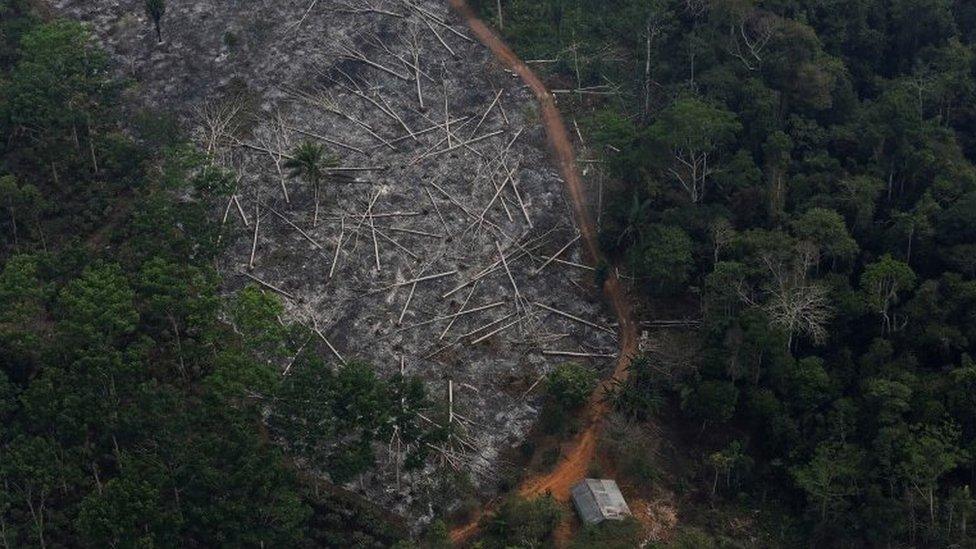
Scientists say the Amazon has suffered losses at an accelerated rate since Jair Bolsonaro took office
Deforestation of the Amazon rainforest in Brazil has surged to its highest level since 2008, the country's space agency (Inpe) reports.
A total of 11,088 sq km (4,281 sq miles) of rainforest were destroyed from August 2019 to July 2020. This is a 9.5% increase from the previous year.
The Amazon is a vital carbon store that slows down the pace of global warming.
Scientists say it has suffered losses at an accelerated rate since Jair Bolsonaro took office in January 2019.
The Brazilian president has encouraged agriculture and mining activities in the world's largest rainforest.
The Amazon is home to about three million species of plants and animals, and one million indigenous people.
The latest data marked a major increase from the 7,536 sq km announced by Inpe in 2018 - the year before Mr Bolsonaro took office.
The new figures are preliminary, with the official statistics set to be released early next year.
A section of the Amazon forest is systematically removed over a three-year period
Brazil had set a goal of slowing the pace of deforestation to 3,900 sq km annually by 2020.
In addition to encouraging development in the rainforest, President Bolsonaro has also cut funding to federal agencies that have the power to fine and arrest farmers and loggers breaking environmental law.
Mr Bolsonaro has previously clashed with Inpe over its deforestation data. Last year, he accused the agency of smearing Brazil's reputation.
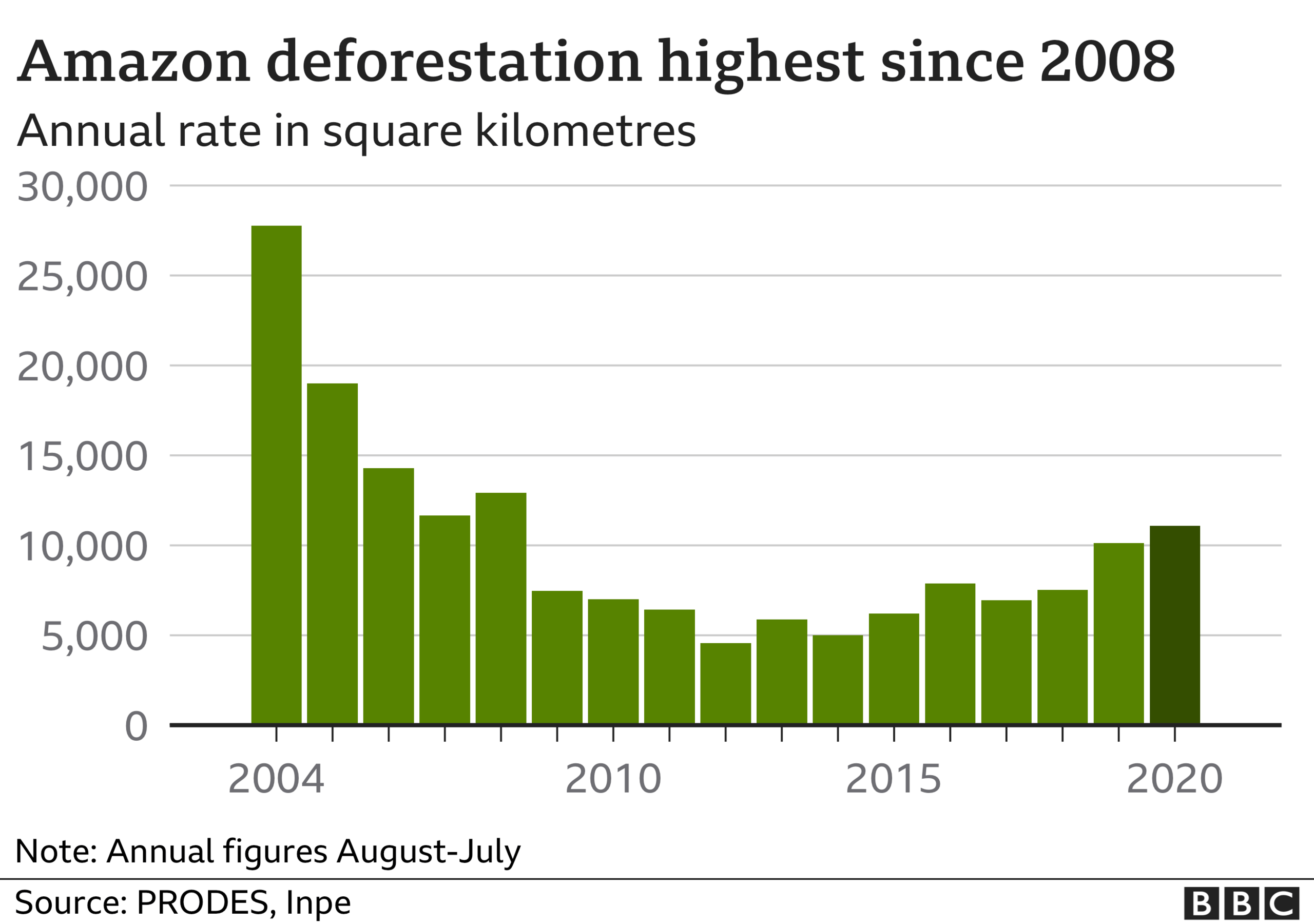
In a statement, Brazilian non-governmental organisation Climate Observatory said the figures "reflect the result of a successful initiative to annihilate the capacity of the Brazilian State and the inspection bodies to take care of our forests and fight crime in the Amazon".
But some officials said the fact that the rate of increase was lower than that recorded last year was a sign of progress.
"While we are not here to celebrate this, it does signify that the efforts we are making are beginning to bear fruit," Vice-President Hamilton Mourão told reporters.

Bolsonaro's hand

The scale of destruction in the Amazon rainforest is hard to comprehend.
Last year I experienced the silent aftermath of deforestation where huge trees had been bulldozed and would later be burned.
This is done to create fields for cattle grazing and soya cultivation - big earners for Brazil.
At the time it was said that an area of forest the size of a football pitch was cleared every single minute.
But soon that calculation was overtaken, and this year has seen the largest fires for a decade.
None of this should be a surprise: Jair Bolsonaro, was elected on a promise of development.
Keen to promote mining as well as agriculture, he described the Amazon as "a periodic table" of valuable minerals, and he resents what he sees as outside interference.
But climate scientists say the billions of trees are a vast store of carbon and, without them, the rise in global temperatures will accelerate.
How is the rainforest helping to limit global warming?
- Published2 November 2020
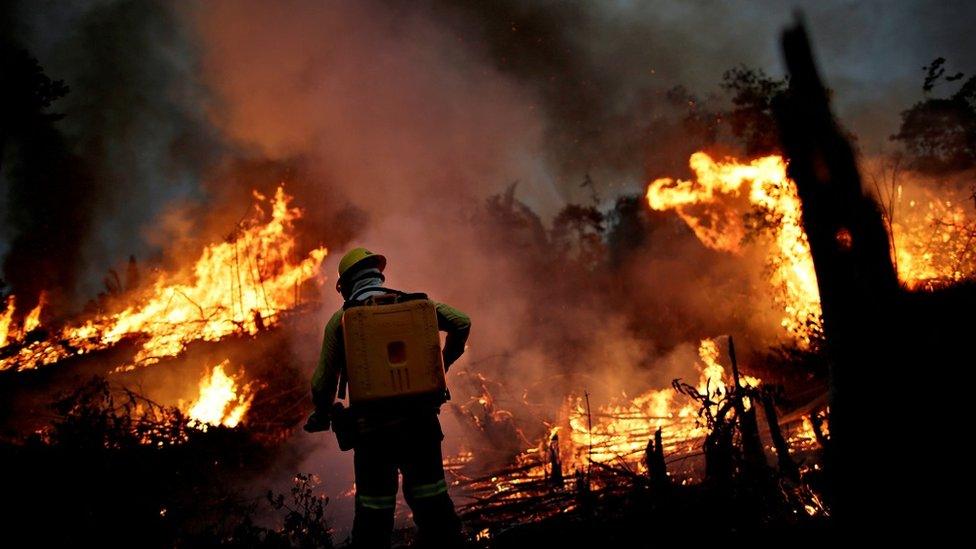
- Published11 February 2020
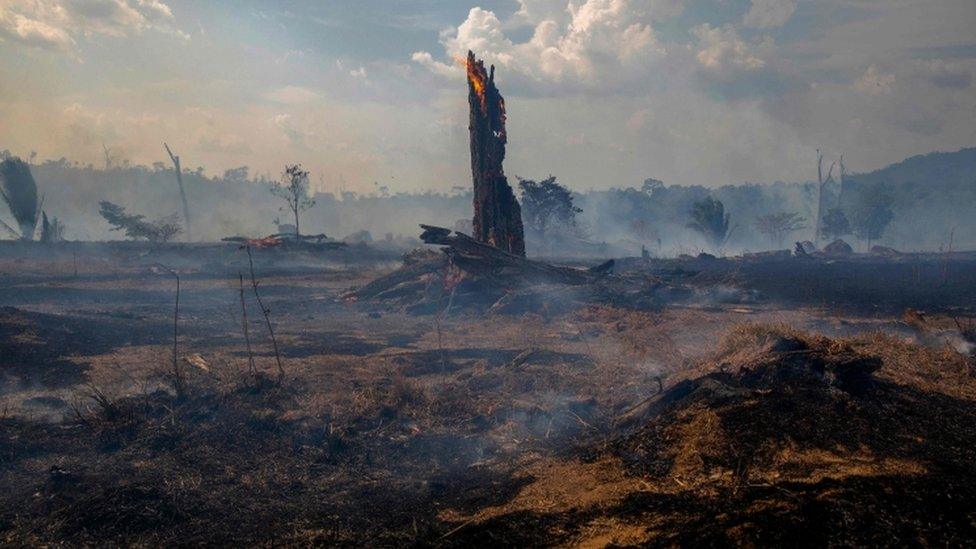
- Published30 September 2020
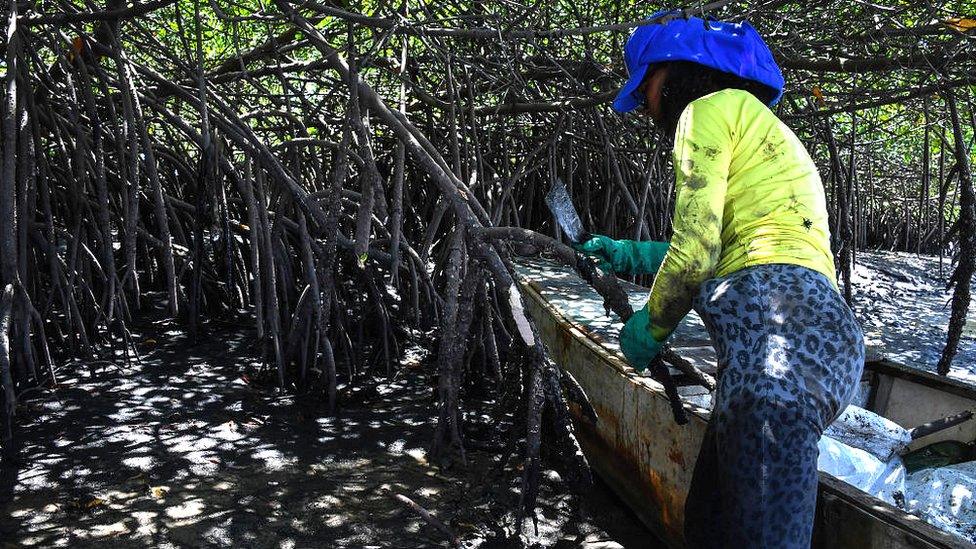
- Published18 July 2020
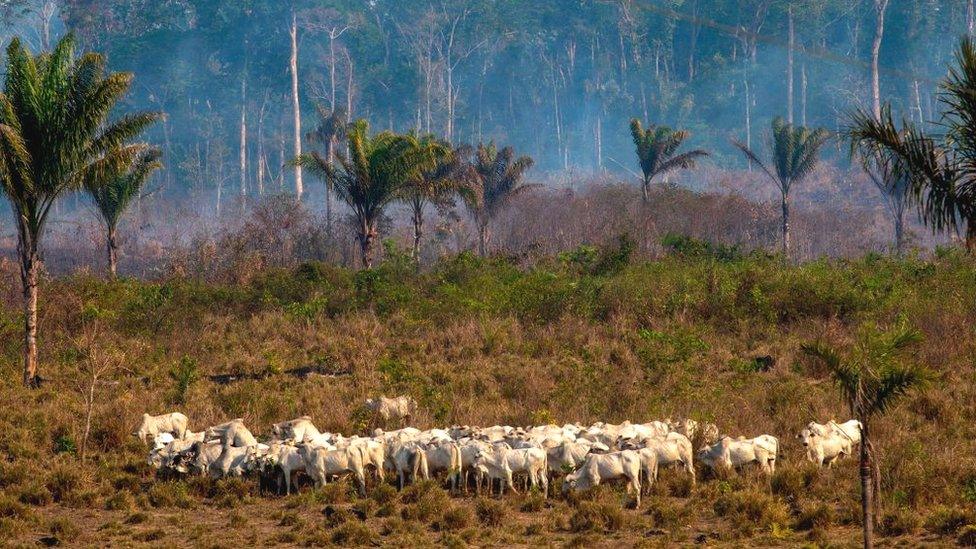
- Published8 May 2020
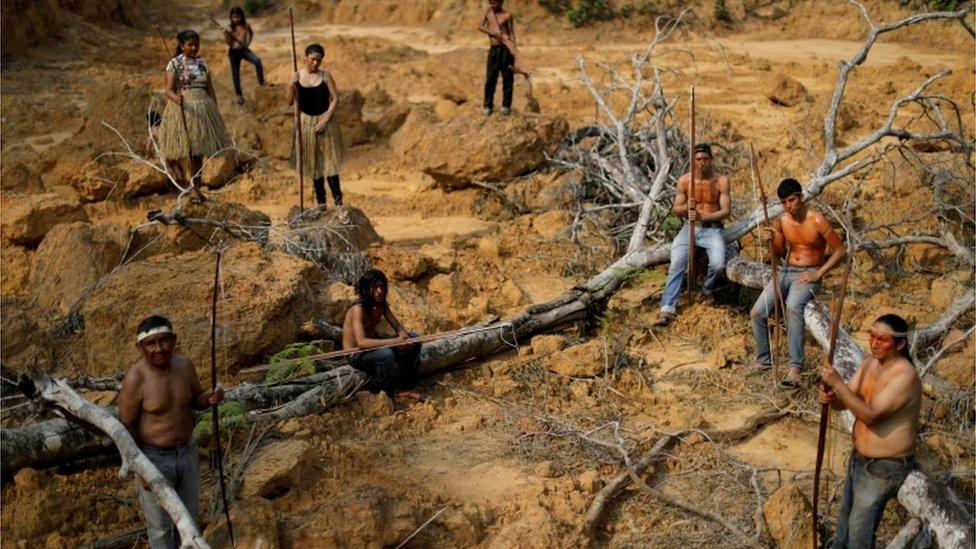
- Published23 February 2020

- Published18 November 2019
